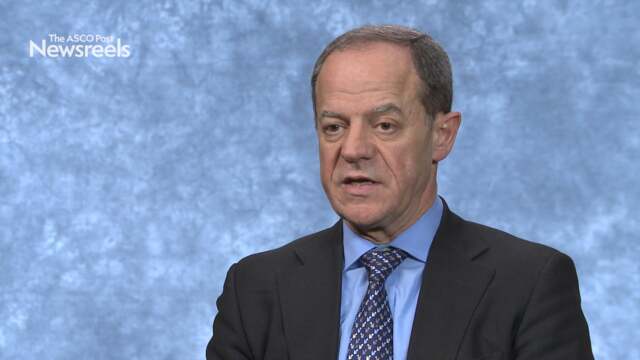Patrick Schöffski, MD, MPH, on RCC: Final Results of the EORTC 90101 CREATE Trial
2018 Genitourinary Cancers Symposium
Patrick Schöffski, MD, MPH, of Catholic University Leuven, discusses findings on the effect of crizotinib on disease control in patients with advanced papillary renal cell carcinoma type 1 with MET mutations or amplification (Abstract 580).
Laurence Albiges, MD, PhD, of the Gustave Roussy Cancer Centre, discusses study findings on the safety and efficacy of nivolumab in metastatic renal cell carcinoma (Abstract 577).
Jonathan E. Rosenberg, MD, of Memorial Sloan Kettering Cancer Center, discusses longer-term efficacy and safety findings on nivolumab monotherapy in metastatic urothelial carcinoma (Abstract 414).
Nicholas D. James, MBBS, PhD, of University Hospitals Birmingham NHS Foundation Trust, discusses study findings on the addition of docetaxel to first-line hormone therapy in prostate cancer, an analysis focusing on cost-effectiveness and long-term and quality-adjusted survival (Abstract 162).
Joaquim Bellmunt, MD, PhD, of the Dana-Farber Cancer Institute, discusses phase III 2-year follow-up findings on pembrolizumab vs investigator’s choice (paclitaxel, docetaxel, or vinflunine) in recurrent, advanced urothelial cancer (Abstract 410).
Jeffrey M. Holzbeierlein, MD, of the University of Kansas Medical Center, summarizes key abstracts on long-term sexual function in germ cell tumor survivors, sentinel node biopsy in clinical stage I testicular cancer, the impact of Medicaid expansion on diagnosis and management of patients with testicular cancer, and comparative genomic profiling of refractory/metastatic penile and nonpenile cutaneous squamous cell carcinoma (Abstracts 549-552).





